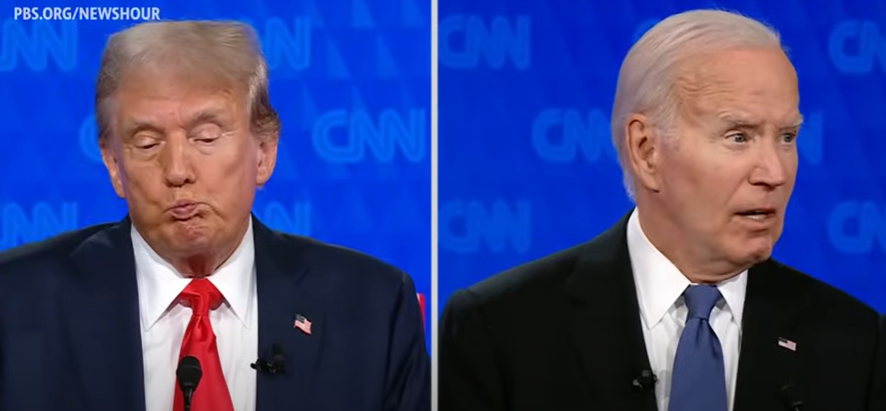
Remember Lynette “Squeaky” Fromme? How about Sara Jane Moore and John Hinckley?
Keep those names in mind.
In the immediate aftermath of the assassination attempt on Donald Trump, some Republicans were quick to blame “divisive rhetoric” coming from Joe Biden and the Democrats in general.
Ohio Sen. J.D. Vance, who is seen as a possible vice presidential candidate, said that Biden’s rhetoric “led directly to President Trump’s attempted assassination.”
On CNN, I heard a Republican talk about awful rhetoric coming from the left. He also brought up the 2017 shooting of Republican Congressman Steve Scalise.
Time for some reality.
Yes, there is awful – if one wants to use that word – rhetoric coming from Democrats. The notion that democracy as we know it will end if Trump is elected is kind of a stretch.
But how can anyone overlook the crazy rhetoric – and sometimes action – from those on the right?
Trump has talked about putting opponents like Liz Cheney on trial and says he wants to be a dictator, albeit for one day.
As for actions, we have seen the husband of Nancy Pelosi brutally attacked and a militia group hatch a plan to kidnap the governor of Michigan.
Crazy rhetoric these days is very bipartisan.
But the larger point here is that no one knows as of now what motivated Thomas Matthew Crooks, Trump’s would-be assassin.
How silly is it to ascribe political motives to an event when we have no idea what the motives are.
What we know about Crooks’ politics is truly trivial.
He registered as a Republican, but he made a “contribution” to a left-leaning group. That was $15. That’s like he bought a Democrat a few beers.
Now let’s move back to the individuals mentioned above.
Squeaky Froome and Sara Jane Moore attempted to shoot President Gerald Ford.
Froome’s gun never fired and Moore missed. Both events occurred close to each other in 1975.
Froome was a follower of Chales Manson; Moore was at varying times a radical and also an FBI informant.
Neither had a clear-cut motivation for their acts. In the vernacular of the day, they were simply “crazy.”
Hinckley was right in step – or even beyond – the two women. He said he shot Ronald Reagan in 1981 because he wanted to impress Jodie Foster, who was then a very young actress.
That’s right, he thought shooting the president was a way to get a girl.
The point here is that some who commit an act like shooting a president have no political motivation at all. They are just “crazy.”
That’s something everyone should keep in mind. This isn’t the time to look for political motives that may not exist.
.
(Visited 23 times, 23 visits today)
In today’s political landscape, it seems that bipartisan cooperation is a rare occurrence. The divide between Democrats and Republicans has never been more pronounced, with each side seemingly unwilling to compromise on even the most basic of issues. However, according to Insider NJ, there may be more bipartisan rhetoric in politics than meets the eye.
One of the key insights from Insider NJ is that while public discourse may be dominated by partisan bickering, behind the scenes there is often a great deal of bipartisan cooperation. This can be seen in the way that legislation is crafted and passed, with lawmakers from both parties working together to find common ground and reach consensus on important issues.
Another important factor to consider is the role of political leaders in shaping the tone of political discourse. According to Insider NJ, there are many politicians who are committed to fostering a more civil and respectful dialogue, even in the face of intense partisan pressure. These leaders understand that in order to effectively govern, it is essential to work across party lines and find areas of agreement.
Furthermore, Insider NJ highlights the importance of recognizing the diversity of opinions within each party. While it may seem like Democrats and Republicans are monolithic entities, the reality is that there is a wide range of views within each party. By acknowledging and respecting these differences, lawmakers can find common ground and work together to achieve meaningful change.
In conclusion, while it may seem like bipartisan cooperation is a thing of the past, the reality is that there is still a great deal of bipartisan rhetoric in politics today. By focusing on areas of agreement and working together to find solutions, lawmakers can overcome partisan divides and make progress on important issues. As Insider NJ shows, there is hope for a more civil and productive political discourse in the future.
